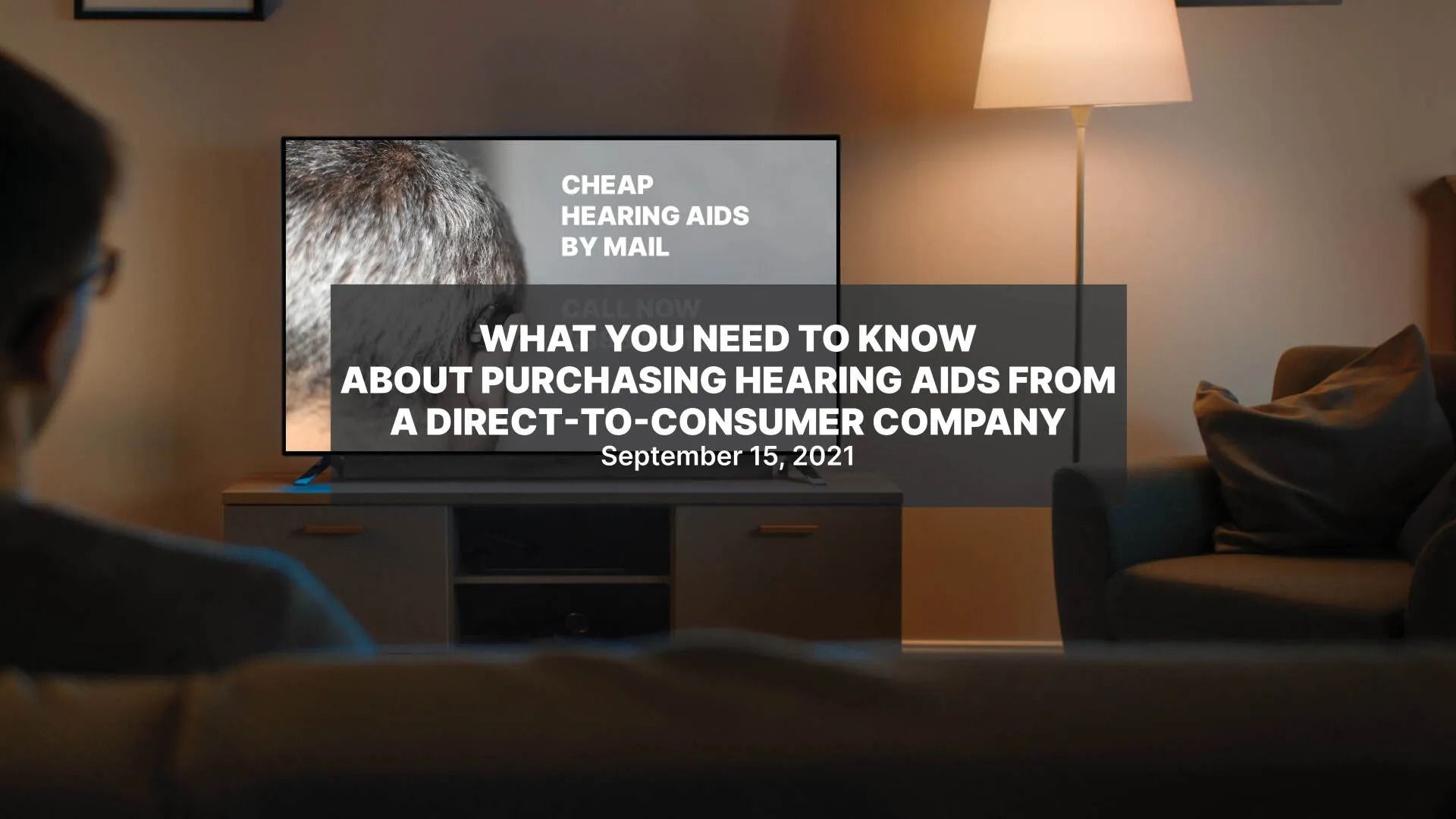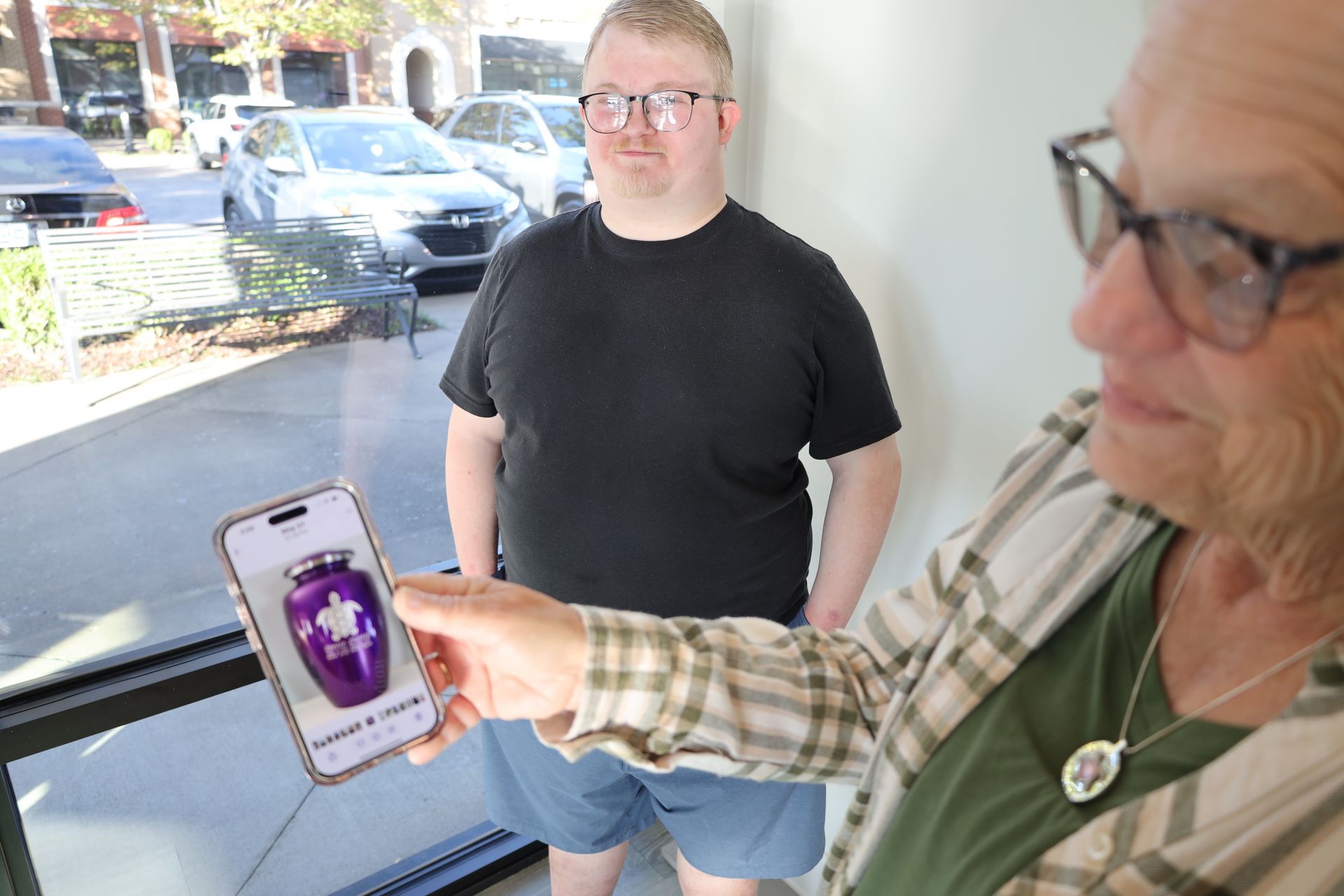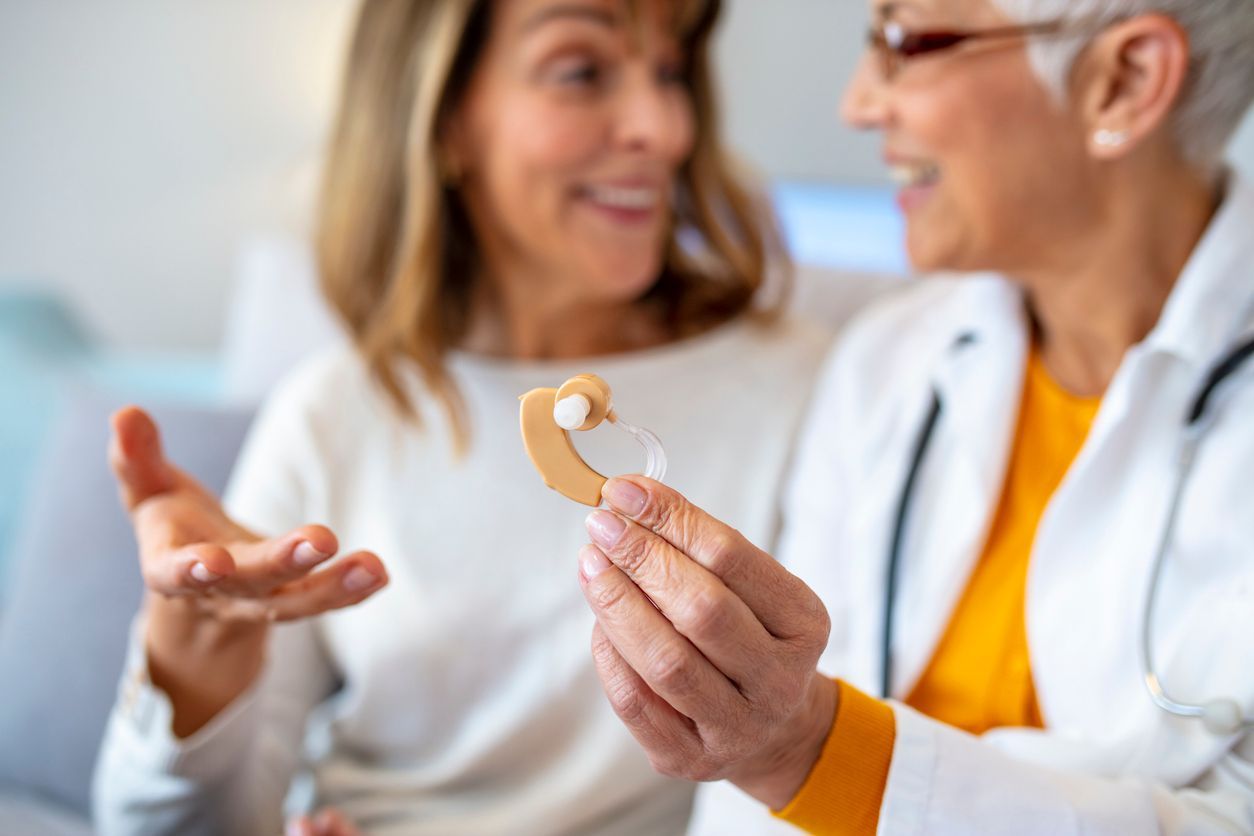Direct To Consumer Hearing Aids

Purchasing hearing aids without working with an audiologist—the hearing health care professional with the most education and training to treat hearing loss—has become increasingly more mainstream. Consumers can find a variety of items billed as hearing aids through direct-to-consumer (DTC) methods. They might be marketed to consumers through television, print and digital advertising as well as found by way of internet searches and at your local pharmacy or electronic store.
These devices are then mailed directly to a person’s home or sold over-the-counter. While this may seem convenient, is buying through these sources the best option? The answer is no. Here’s why.
Don’t be lured in by the “lower prices” promise
These sources often advertise hearing aids for a price lower than what you would spend when working through an audiologist. However, the amount you actually pay the DTC entity will likely be much higher than advertised. Most companies that deal in mailed devices charge additional or hidden fees for supplies, programming services, programming equipment, repairs and/or warranties. These additional services are essential for being successful with hearing aids and are typically included in the cost of a hearing aid purchased from your local audiologist.
An accurate diagnostic test of your hearing loss is imperative for hearing aid success
Some DTC companies advertise “pre-set” devices and will “program” those devices without first obtaining a comprehensive hearing test by a licensed audiologist, instead having you take a hearing test online. Online hearing screenings cannot accurately diagnose hearing loss type or severity; they can only determine if a possible hearing loss is present. Your hearing loss is unique and cannot be completely generalized into a category of severity, as many DTC companies suggest.
Are they selling you an amplifier or a hearing aid?
If a DTC company attempts to classify your hearing loss based on your answers to a few questions or uses only one response from a hearing test to determine which hearing aid you need, you may actually be purchasing an amplifier that is being marketed as a hearing aid. Hearing aids are class II medical devices and MUST be programmed specifically for you based on the results obtained during your comprehensive hearing evaluation. This is required for a precise and optimized fitting. If devices are not programmed in this manner, they will not provide benefit in difficult listening environments and overall sound quality will suffer. Obtaining a current hearing test prior to pursuing amplification is crucial to determining an appropriate treatment plan as well as a major factor in determining a person’s success with hearing aids. A new category of hearing devices that entered the market in 2022 is an “over-the-counter” hearing device.
In-person appointments with your audiologist are a key to hearing aid success
DTC companies often boast that their devices will be sent directly to you. Keep in mind that means you are on your own when it comes to figuring out your new hearing aids. Having your audiologist as a trusted professional who will walk you through the process of hearing aid use, care, and cleaning and having someone to turn to as you adjust to your new hearing aids is vital.
Imagine this scenario: You are having difficulty communicating with your loved ones, or you are feeling isolated from your friends. You find what you think is a solution through DTC, order the hearing aids or an amplifier, and get excited that you will finally be able to hear better! The devices arrive and you pull them out of the box, but you quickly find that you don’t know how to insert them, don’t know how to change the batteries or seat them in a charging station, don’t know what all the parts do, and find that they just don’t sound right. Then, while trying to figure out how everything works, you drop one of your hearing aids and it breaks! You quickly become frustrated and have no idea what to do. You call the online company where you purchased the hearing aids, but you are put on hold. You want to talk to a person face-to-face, so you stop by your local audiologist’s office for help. You find out that only very minor repairs can be made, because your brand of hearing aid is considered a proprietary device (belonging only to the online retailer you purchased from). Since it is a proprietary device, the hearing aids can’t be adjusted or programmed in this office, even though you have already identified numerous situations where they are not helping you communicate. You are told that you will need to send the hearing aids back to the DTC company for programming adjustments, which does not allow for real time feedback from the you when the adjustment is made. You may even be required to send your hearing aids in multiple times before your concern is addressed. Unfortunately, each time you return the hearing aids to the company, you will likely be required to pay for shipping and will be without sound until your hearing aids are returned. The investment of time and money is ultimately much higher than you anticipated when you purchased these devices based on low price and the “convenience” of having them mailed to your home. This is just one example experienced by a person who came to Johnson Audiology for help, after purchasing a set of proprietary hearing aids online.
Beware of well-known hearing aid brands you find online
Occasionally, online consumers are able to find a hearing aid from one of the ”Big 6” hearing aid manufacturers (Oticon, Phonak, Resound, Siemens, Starkey, and Widex) that are supposedly dispensed by an audiologists; however, purchase of these devices online can be very costly and is not recommended. The major manufacturers do not authorize the sale of their products online and are warning consumers not to purchase hearing aids in this manner. Many manufacturers will void the warranties of any devices purchased online, ultimately adding additional costs to the consumer’s perceived “low price.” Some manufacturers are even recalling hearing aids sold by these online companies and have requested that the hearing aids be returned once located.
Scheduling an appointment with and investing in hearing aid technology through an audiologist ensures that you are well-informed regarding your hearing health care, that your treatment plan is tailored specifically to you, that you are offered the latest technology, and that you have a trusted hearing professional close to home who is supporting you every step of the way. Plus, any potential medical components to your hearing loss will be recognized by your audiologist and a treatment plan mapped. Your ears and sense of hearing are important. Don’t trust this vital area of your health to DTC companies that are retail-driven entities rather than health care professionals who really care about your hearing.
Recent Posts



